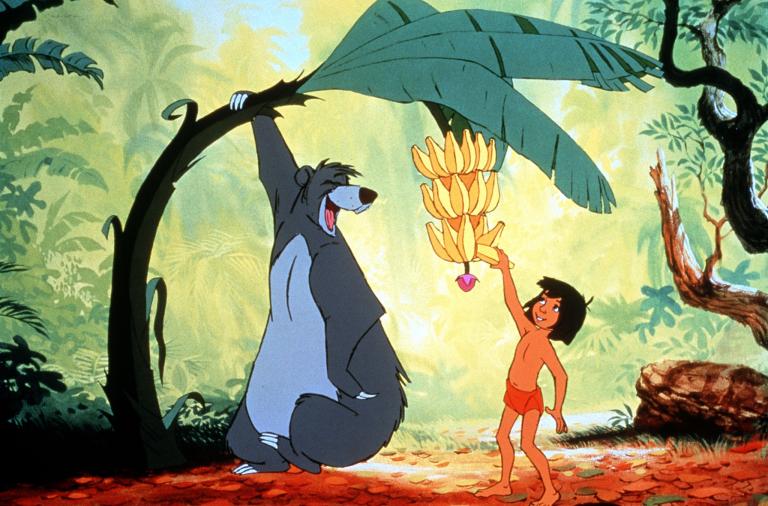The Jungle Book: 10 Trivia Tidbits About the Original
Jon Favreau's The Jungle Book roars onto Blu-ray today. However, this is not the movie many of us have grown up with. The 2016 Jungle Book is a thrilling CG, celebrity-studded adventure that left audiences breathless and made a ton of cash, but so did the original. Even in 1967 dollars, The Jungle Book (animated feature) was an absolute blockbuster! With a production budget of only $4 million, The Jungle Book brought in $73 million in its first release and has made a total profit of $205.8 million. In fact, in 1967, The Jungle Book was listed as the fourth highest grossing film of the year.
To celebrate Disney’s latest take on The Jungle Book, I took a closer look at the original and found some great trivia tidbits:
- The Jungle Book was the last official animated feature film overseen by Walt Disney. The movie premiered on October 18, 1967 and Walt Disney passed away on December 6, 1966.
- The fate of the Walt Disney animation studios was uncertain after Walt Disney’s death. In fact, there was heated debate as to closing the animation studios. The unprecedented critical and financial success of The Jungle Book was a boon to the studios and ensured the animation studios future.
- The early drafts for Walt Disney’s The Jungle Book were relatively dark (similar to the gloomy tone of Kipling’s novel). Bill Peet, a story artist with Walt Disney animation since 1937, diligently and single-handedly worked to storyboard an outline displaying the dramatic theme. It was Bill Peet who originally suggested The Jungle Book to be Walt Disney’s next feature animated film.
- Walt Disney was unhappy with the tone of the storyboards. In fact, Disney strongly believed Peet’s version was too serious for a “Disney” film and requested a multitude of changes. Peet refused to change the tone and material and soon left the studio.
- After his sudden departure from the studios, Peet became a very celebrated writer and illustrator of children’s books. Peet never spoke poorly of his time at the studios despite his bitter resignation. In fact, in Bill Peet’s unique autobiography, he only references his time at the studios in a positive light and does not mention why he resigned.
- Much of Peet’s work was immediately discarded upon his resignation. However, the lively and intricate personalities Peet imbued into each character remained in the finished film.
- Another aspect of Peet’s work that was kept and strongly featured in the finished animated product were the two unique characters he created. Neither the human girl that Mowgli eventually discovers and falls in love with or King Louie are original to Kipling’s book, but can you imagine Disney’s The Jungle Book without them?
- In original drafts of the script and storyboards everyone’s favorite jazz-loving bear, Baloo, was not a largely important character. In fact, Baloo was barely featured. But all that changed when Phil Harris began recording sessions and brought a wonderful sense of life and warmth to the character. Baloo was quickly reworked into the emotional center of the movie. (Interestingly, Harris improvised a majority of his lines!)
- In regards to music, Kaa’s hypnotic song “Trust in Me” was once called “Land of Sand” and originally written for a very different movie. The Sherman Brothers penned this song for Mary Poppins but landed on the cutting room floor in favor of "Jolly Holiday".



